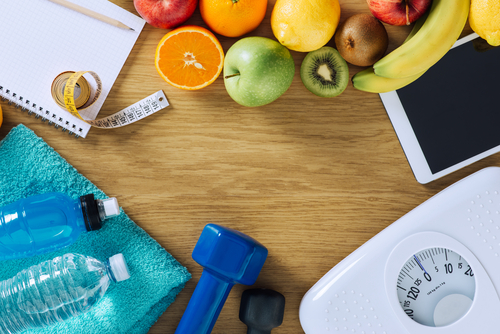Achieving your desired body weight sometimes seems impossible, doesn’t it? No matter how hard you work out and control your calorie intake, you still can’t seem to lose as much weight as you’d like. However, it’s important to bear in mind that a variety of different factors affect your weight loss attempts.
For instance, you need to find out how weight loss relates to BMR and calorie count to be able to develop an exercise and meal plan that will maximize your results. In addition to researching online and exploring different resources on metabolism and fitness, undergoing metabolic testing for weight loss is another time-saving and efficient way to gain a better understanding of your body.
What is a good calorie count to lose weight?
Believe it or not, counting and controlling your calorie intake is not as easy as it may seem. A great number of individuals count the number of calories they consume solely based on product labels. Furthermore, studies have shown that people are more likely to correctly count calories in small meals and portions, while the number of calories in large portions is typically miscalculated.
The main problem behind calorie counting is that you may not be aware of how many calories you actually need. Relying on general recommendations that you find online can put your body in starvation mode and even cause you to develop an eating disorder. Thus, it’s crucial that you learn how many calories you actually need before eliminating them from your diet.
Tips for counting calories
When counting calories, there are plenty of factors to consider, including the following:
- Your BMR: This stands for the basal metabolic rate that actually represents the minimal number of calories that your body burns while resting. This is the absolute bare minimum that you must consume so that your body can burn these calories on breathing, digesting food, and other involuntary actions.
- Your activity levels. If you engage in any kind of physical activity, you need to consider the calories you burn during this activity. This way, you’ll be able to burn enough calories to lose weight without having to solely eat less.
- Your muscle mass. If your goal is to not only control and lose weight, but also build muscle, you will need to consume more calories because your BMR will increase. Simply put, your body will need more energy to regenerate tissue.
- Other nutrients. Simply reducing your calorie intake isn’t enough. You also need to consider other nutrients and include them in your diet. For instance, it’s recommended that you eat nutrient-rich fruits and vegetables and reduce the consumption of alcohol, soft drinks, and sweets.
Does your BMR decrease as you lose weight?
 It’s important to note that different factors such as weight loss and your age can affect your metabolism and BMR. This means that as you continue to lose weight, your basal metabolic rate will decrease or slow down.
It’s important to note that different factors such as weight loss and your age can affect your metabolism and BMR. This means that as you continue to lose weight, your basal metabolic rate will decrease or slow down.
Unfortunately, this can undermine your attempts to lose weight because in general, the feeling of hunger will increase. This happens because your brain automatically tries to protect you against starvation. Consequently, this may cause you to gain weight shortly after.
Therefore, following a strict diet and reducing your calorie intake without consuming healthy nutrients and engaging in physical activity may provide short-term results. It’s important that you try to lose weight in a healthy, controlled way to maintain a healthy metabolic age.
Should you eat less than your BMR to lose weight?
Since BMR represents the minimal calorie number you need for involuntary body functions, you shouldn’t consume fewer calories than your BMR. To lose weight properly, you need to consider both physical activity and your BMR. The bottom line is that you need to create a 500 calorie deficit while still consuming all the required nutrients.
We’re a trusted center for metabolic testing for healthy weight loss in San Diego & beyond
Do you want to lose weight and achieve long-term results? Would you like to boost your metabolism instead of slowing it down? The first step is getting to know your body and metabolism better, which you can do at Leo’s Fitness Lab, a health and fitness center with the #1 team of experts in the San Diego area.
Our advanced facilities are located in the neighborhood of Mission Hills, boasting cutting-edge equipment for metabolic testing. After your evaluation, we’ll be able to customize your personal fitness and diet plan to provide you with optimal results. Health & weight loss come hand in hand at Leo’s Fitness Lab, so schedule an appointment today!



